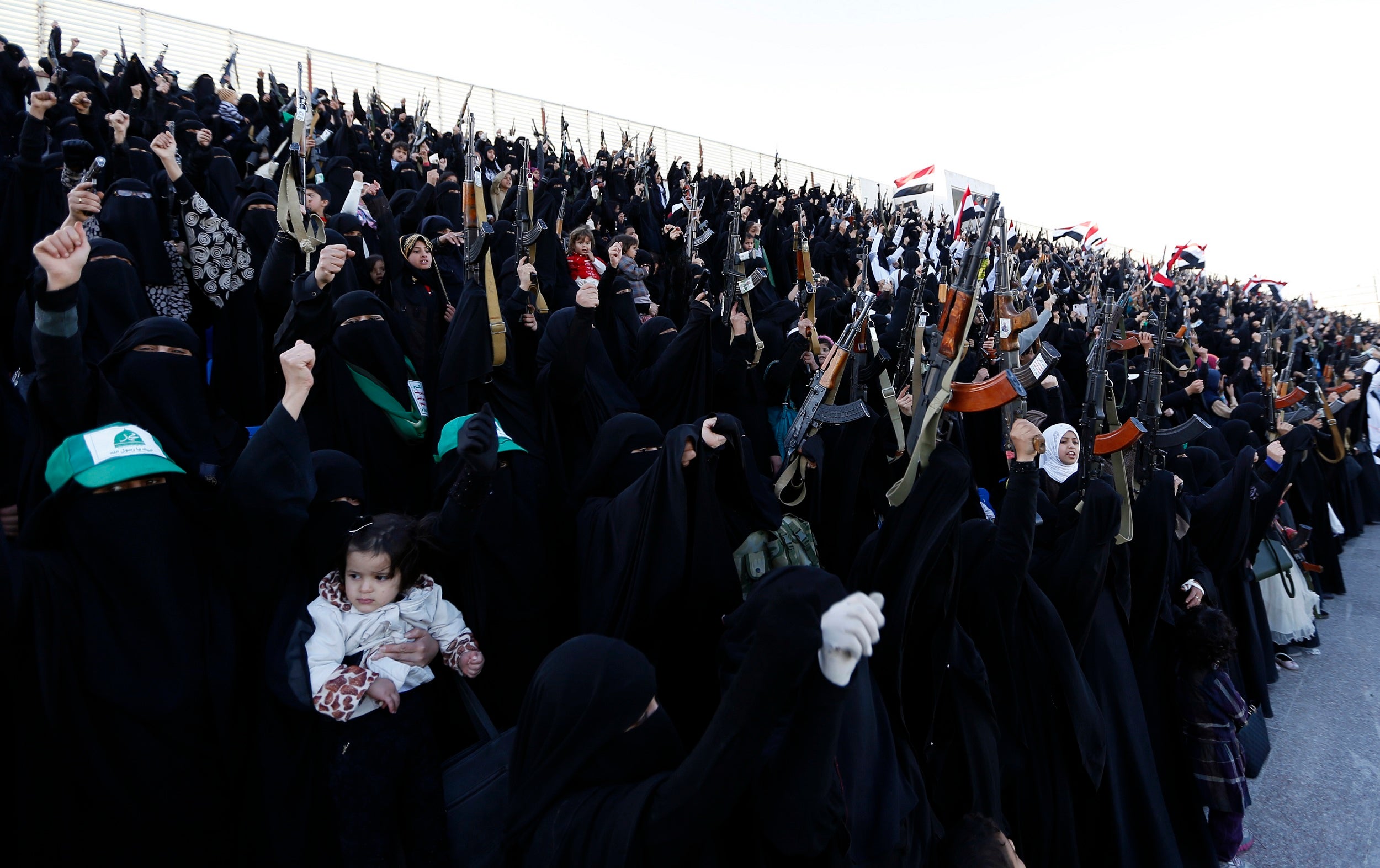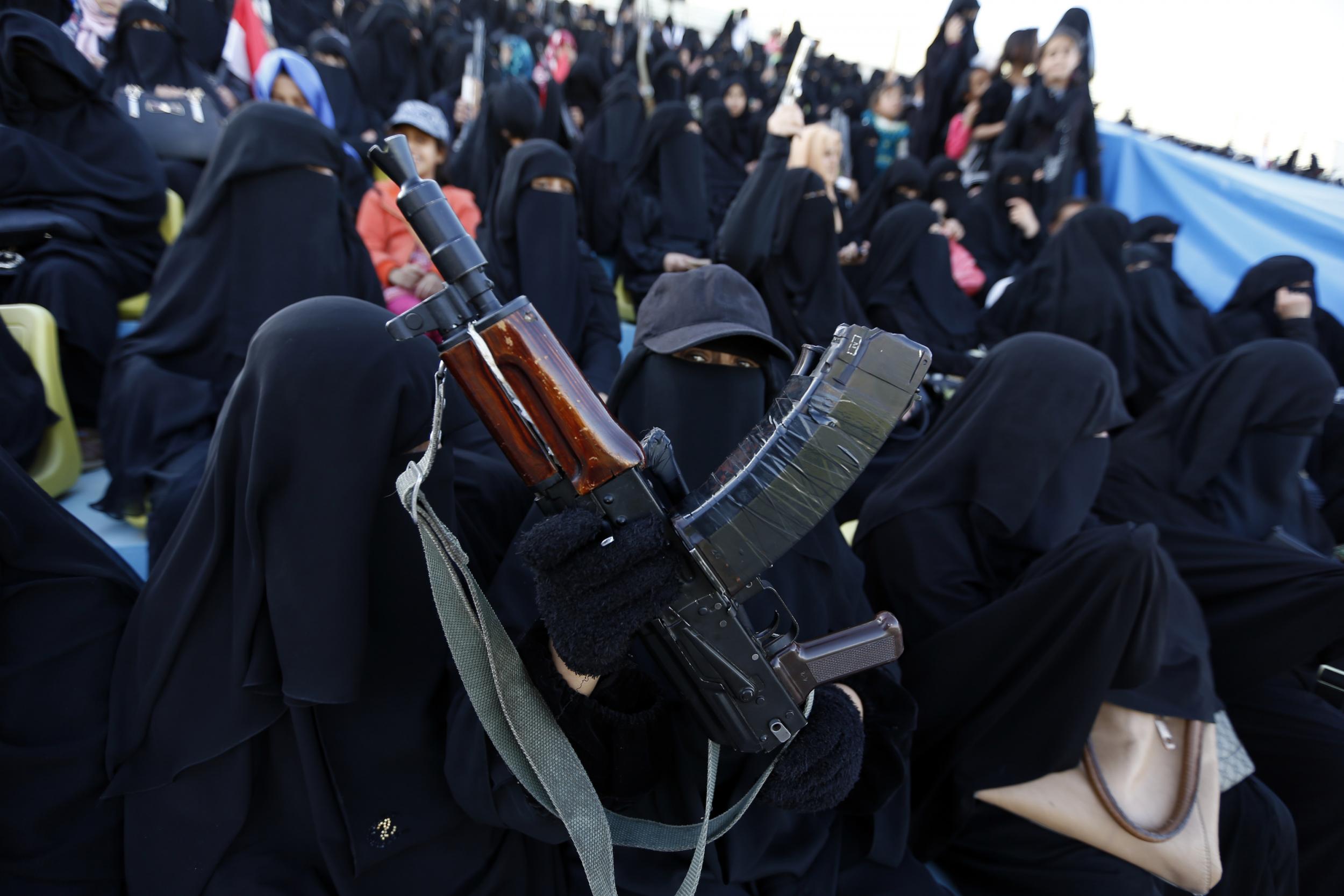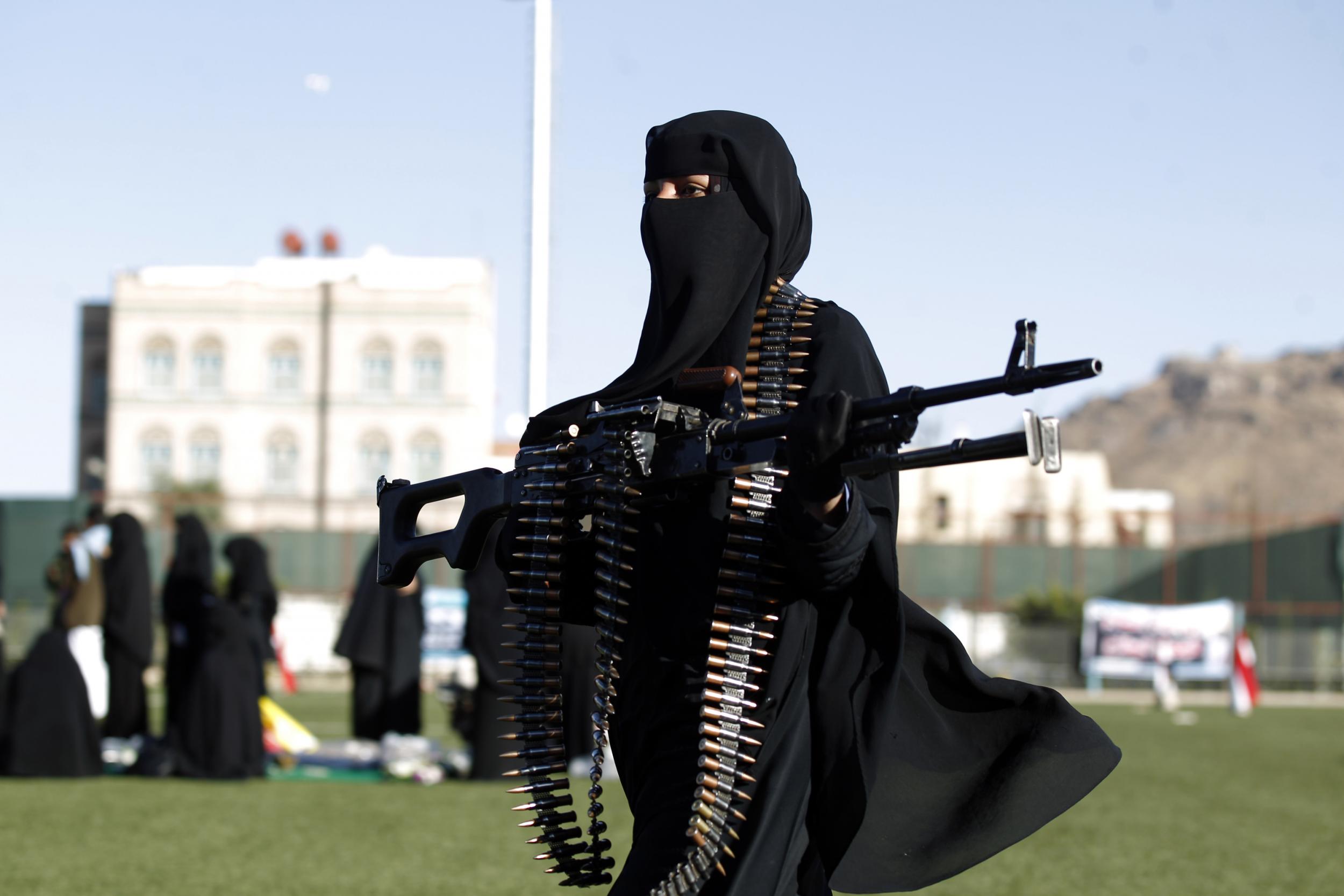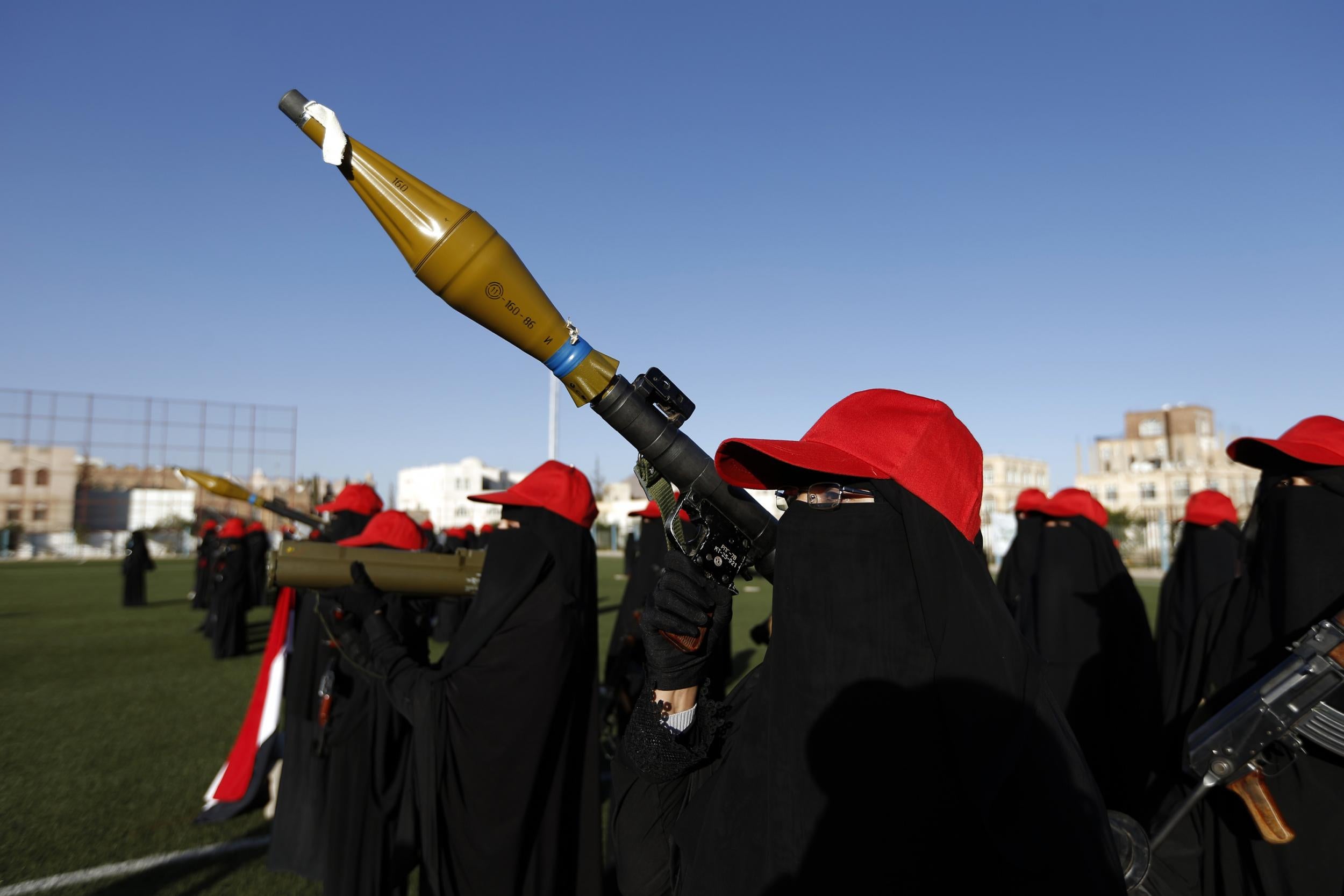Female Yemeni fighters carry babies and machine guns at anti-Saudi rally
Women took to the streets of Sanaa in support of the Houthi rebels

Your support helps us to tell the story
From reproductive rights to climate change to Big Tech, The Independent is on the ground when the story is developing. Whether it's investigating the financials of Elon Musk's pro-Trump PAC or producing our latest documentary, 'The A Word', which shines a light on the American women fighting for reproductive rights, we know how important it is to parse out the facts from the messaging.
At such a critical moment in US history, we need reporters on the ground. Your donation allows us to keep sending journalists to speak to both sides of the story.
The Independent is trusted by Americans across the entire political spectrum. And unlike many other quality news outlets, we choose not to lock Americans out of our reporting and analysis with paywalls. We believe quality journalism should be available to everyone, paid for by those who can afford it.
Your support makes all the difference.Female fighters carrying babies, rocket launchers and machine guns took to the streets of the Yemeni capital of Sanaa to protest Saudi Arabia’s involvement in its brutal conflict.
Marching in support of the Houthi rebel movement, they shouted slogans against the multinational coalition forces led by oil rich Middle Eastern state, which support the government.
Their protest followed talks this week between a United Nations envoy and the Saudi-backed, internationally-recognised Yemeni President Abdrabbuh Mansour Hadi.
They attempted to broker a ceasefire to end the brutal conflict, which has claimed an estimated 10,000 civilian lives.
The UN ranks Yemen as one of the world's worst humanitarian crises.
The death toll increased when the Saudi-led coalition intervened in 2015 to push back rebels who had gained control of the capital and other parts of the country.
The majority have been killed by coalition airstrikes and the conflict has triggered a grave humanitarian crisis, with an estimated 80 per cent of the population in need of aid.

The fighting began when attempts to bring political stability to the country failed after the country's longtime president Ali Abdullah Saleh was forced relinquish power to his deputy Mr Hadi.
Subsequently, Mr Hadi struggled to handle many of the problems affecting the country, including extremist attacks by al Qaeda, corruption, unemployment and food insecurity.
The Houthi rebels then seized on his weakened control and Many Yemeni civilians backed them as they took control of the capital in 2014.


Many charities, including Amnesty International, have accused the UK of being complicit in the war by arming Saudi Arabia.
The British government has rejected calls by two parliamentary committees for it to stop the sale of British bombs to the country's armed forces in Yemen where they have been widely accused of committing war crimes during the campaign.
Reports on the ground suggest they have blown up international hospitals, funerals, schools, and weddings.
Join our commenting forum
Join thought-provoking conversations, follow other Independent readers and see their replies
Comments